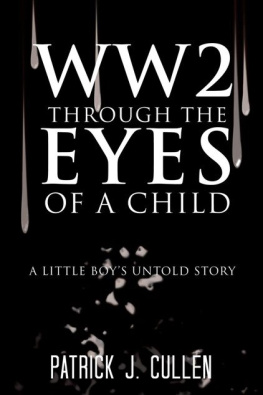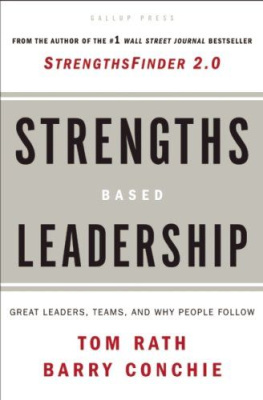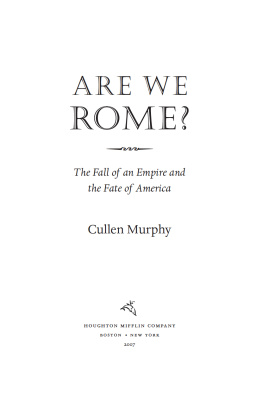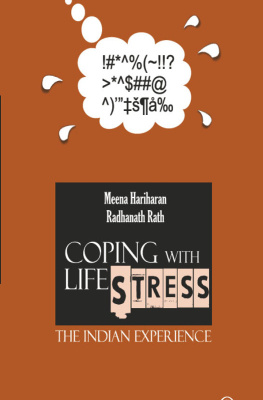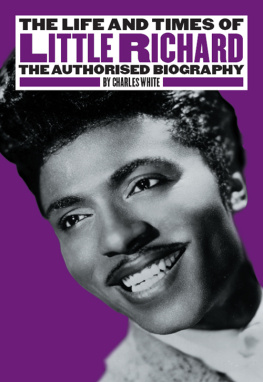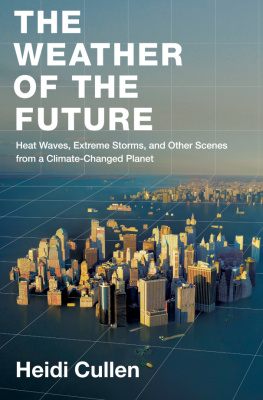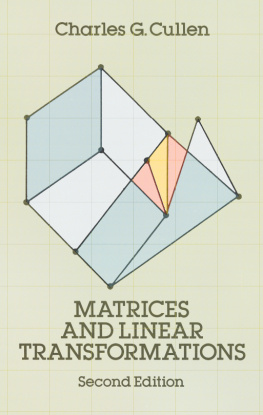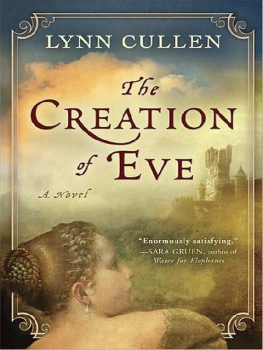Richard Cullen Rath - How Early America Sounded
Here you can read online Richard Cullen Rath - How Early America Sounded full text of the book (entire story) in english for free. Download pdf and epub, get meaning, cover and reviews about this ebook. year: 0, genre: Religion. Description of the work, (preface) as well as reviews are available. Best literature library LitArk.com created for fans of good reading and offers a wide selection of genres:
Romance novel
Science fiction
Adventure
Detective
Science
History
Home and family
Prose
Art
Politics
Computer
Non-fiction
Religion
Business
Children
Humor
Choose a favorite category and find really read worthwhile books. Enjoy immersion in the world of imagination, feel the emotions of the characters or learn something new for yourself, make an fascinating discovery.

- Book:How Early America Sounded
- Author:
- Genre:
- Year:0
- Rating:5 / 5
- Favourites:Add to favourites
- Your mark:
- 100
- 1
- 2
- 3
- 4
- 5
How Early America Sounded: summary, description and annotation
We offer to read an annotation, description, summary or preface (depends on what the author of the book "How Early America Sounded" wrote himself). If you haven't found the necessary information about the book — write in the comments, we will try to find it.
How Early America Sounded — read online for free the complete book (whole text) full work
Below is the text of the book, divided by pages. System saving the place of the last page read, allows you to conveniently read the book "How Early America Sounded" online for free, without having to search again every time where you left off. Put a bookmark, and you can go to the page where you finished reading at any time.
Font size:
Interval:
Bookmark:
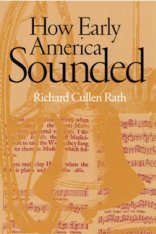 Richard Cullen Rath
Richard Cullen Rath
Cornell University Press
Ithaca and London
Copyright 2003 by Cornell University
Table of Contents
Chapter One
Chapter Two
Chapter Three
Chapter Four
Chapter Five
Chapter Six
Sound was more important to early Americans than it is to you. Their world was in many respects a quieter one. There were no radios, no cars, not even the hum of a refrigerator, a fluorescent light, or a computer. But there were other sounds that would be unfamiliar to you: the handbell and calls of the town crier, women batting their laundry, or horses hooves and ironclad wheels on cobblestones. You, on the other hand, might turn on a radio or television to drown out the roar of a nearby highway. The noises of appliances and other electronic devices and equipment escape your hearing unless they are brought to your attention. The world of early America was also darker than yours. When the sun went down, only dim lamps and fires remained. Your neighborhood might be lit up as bright as day every night. Technology, bright and loud, has attenuated your auditory and accentuated your visual perceptions of the world about you. Throughout the seventeenth century, however, sound had a more immediate power that we no longer associate with it: it was a tangible force laden with intent rather than your harmless whiff of disturbed air.
Perhaps you find my addressing you directly here as peculiar, perhaps even intrusive. I might have chosen instead to introduce this book by writing that sound was more important to early Americans than it is to present-day Americans, allowing you a comfortable distance from the text, giving it the appearance of a thing to be consumed, evaluated, and judged. In contrast, sixteenth- and seventeenth-century chroniclers were likelyto narrate a book as I have, saying, You have heard rather than We have seen. For a reader to have heard implies sound: before, and perhaps during, the reading of such a book it would have been assumed that you were as likely to listen to ideas as to see them. The use of you interrupts the modern objective gaze that we have come to take for granted. That gaze is steeped in the culture of print and reading, where the eye is the primary organ of perception.
Here and there in this book I have indulged in the conceit of talking about a somewhat homogenous modern or postmodern us that perceives the world differently than the subjects of this book. The we in question is highly literate and visually oriented. In using this construct, I in no way mean to infer that you have grown deaf in some irretrievable fashion. In fact, I rely on you to hear the page as well as see it. This act of synesthesia is only possible to the extent that your auditory imagination is in working order, so it is not a deafness that I propose, but a loss of some measure of hearings importance, and the setting aside of older ways of hearing that has taken place over many generations. I ask you to pick these ways up from their corner, as it were, dust them off a bit, and consider them anew, perhaps like another synesthetic medium, an old vinyl record.
For its part, early modern reading was a different and much more variegated species than it is today, centered on hearing the page as much as seeing it. Just how different it was is only partially demonstrated when you are confronted with elements of print style that were perfectly acceptable then. Texts used italic, blackletter, and bold typefaces to indicate verbal emphases in seventeenth-century print, giving sonic cues we now find strange. Reading itself was often performed out loud, so that even the illiterate could benefit. Learning to read was an intensive process of sounding out letters, and for most non-elite readers it may have stayed that way. Silent reading was perhaps the exception rather than the norm.
Maybe you have let my direct address pass, this being the books preface. Over time, direct address in books was relegated to prefaces, which were meant to frame the book for the readers. Then even this vestige disappeared, even though frames of this sort are generally conservative. There is more at stake here than the preface.
The subject of this book -- how people heard their worlds in early America -- requires an ability or at least a willingness on your part to be repeatedly decentered. It requires you to think about the process of taking in knowledge through the eyes from a black-and-white, two-dimensional page, and to think of that act as a socially learned rather than natural way of coming to know things, one that has had profound effects on how you perceive worlds beyond the printed page. This denaturalization, this historical situating of your own reading and its cognitive effects, is a necessary starting point for coming to grips with a sometimes alien world of powerful sounds. Thus the task with which I charge you is to be conscious of the visually centered ways you silently read, to set your habits aside here and there in order to hear more clearly how early America sounded -- not to us, but to its denizens.
In 1666, Samuel Arnold, the minister of Marshfield in Plymouth Colony, wrote to Increase Mather describing a panicky household as it suffered through a fatal summer storm:
The woman of the hous calling earnestly to shut the dore which was done, instantly a terrible clap of thunder fell upon the house & rent the chimney & split the doore in many places & struck most of the persons if not all.
Writing about this document in 1850, the New England historian Nathaniel Shurtleff attributed the damage to a stroke of lightning, silently translating the audible clap into a visual stroke. He is consistent in describing the damages as caused by lightning, as the effects of lightning, and as happened, through the agency of lightning although his sources are nearly equally consistent in attributing the damage to thunder.
The texts that Shurtleff translated were not alone in attributing a tangible power to the sound of thunder. In 1891, the New England historian Sidney Perley noted that in Cotton Mathers day, it was generally supposed that thunder and not lightning caused the damage. After Perley, the distinction seems to have slipped from historical consciousness altogether. Writing a decade later, Reuben Gold Thwaites silently and probably unconsciously substituted lightnings for the thunders (tonnere) reported in the original French of the Jesuit Relations, yet he meticulously translated the plural, which had an important meaning in the Native American soundscape being described. And today, lightning is often substituted for the thunder of seventeenth-century sources, probably in unconscious deference to modern readers. In fact it was this dissonance between interpretation (lightning) and source (thunder) that first suggested to me that a shift in perception may have taken place.
These silent print translations pose two related problems. The first is how to come to terms with the sensory world as it was before it needed to be translated. Sound mattered to early Americans in ways that it no longer does, particularly in the years between 1607 and 1720 or so. The task here is to tease out these older soundways in an effort to recover a portion of the seventeenth-century sensorium, one muffled by time, documentation, and the literate, highly visual mindsets of scholars. I do so by studying soundways: the paths, trajectories, transformations, mediations, practices, and techniques -- in short, the ways -- that people employ to interpret and express their attitudes and beliefs about sound. I am not so much concerned with the underlying beliefs, historically inaccessible as they often are, or the concrete expressions themselves so much as the ways between them. This approach places the book squarely in the domain of cultural history. As such, it is a contribution to the history of the senses, a field long called for, but only recently undertaken with any seriousness.
Font size:
Interval:
Bookmark:
Similar books «How Early America Sounded»
Look at similar books to How Early America Sounded. We have selected literature similar in name and meaning in the hope of providing readers with more options to find new, interesting, not yet read works.
Discussion, reviews of the book How Early America Sounded and just readers' own opinions. Leave your comments, write what you think about the work, its meaning or the main characters. Specify what exactly you liked and what you didn't like, and why you think so.

